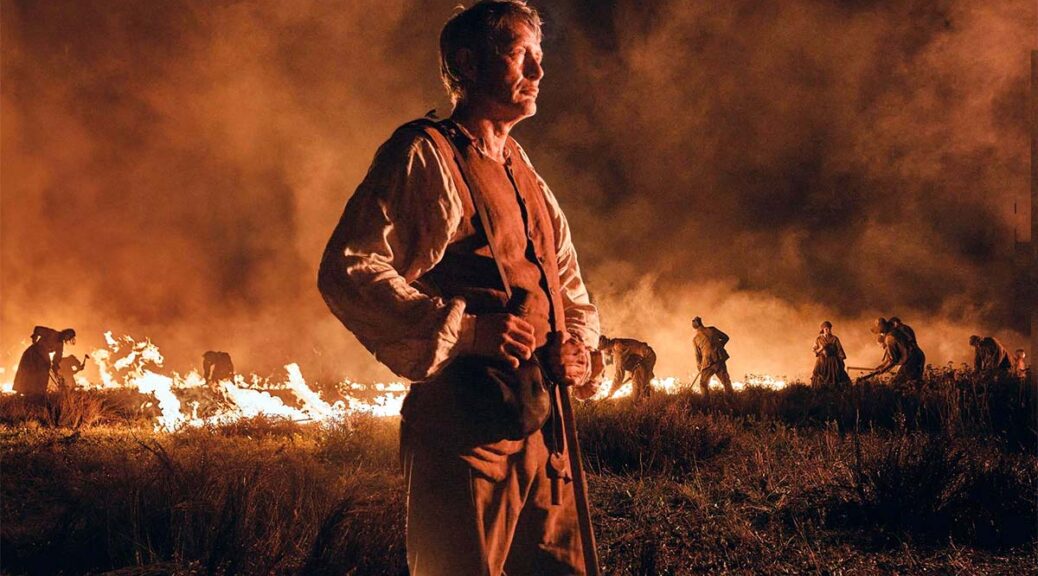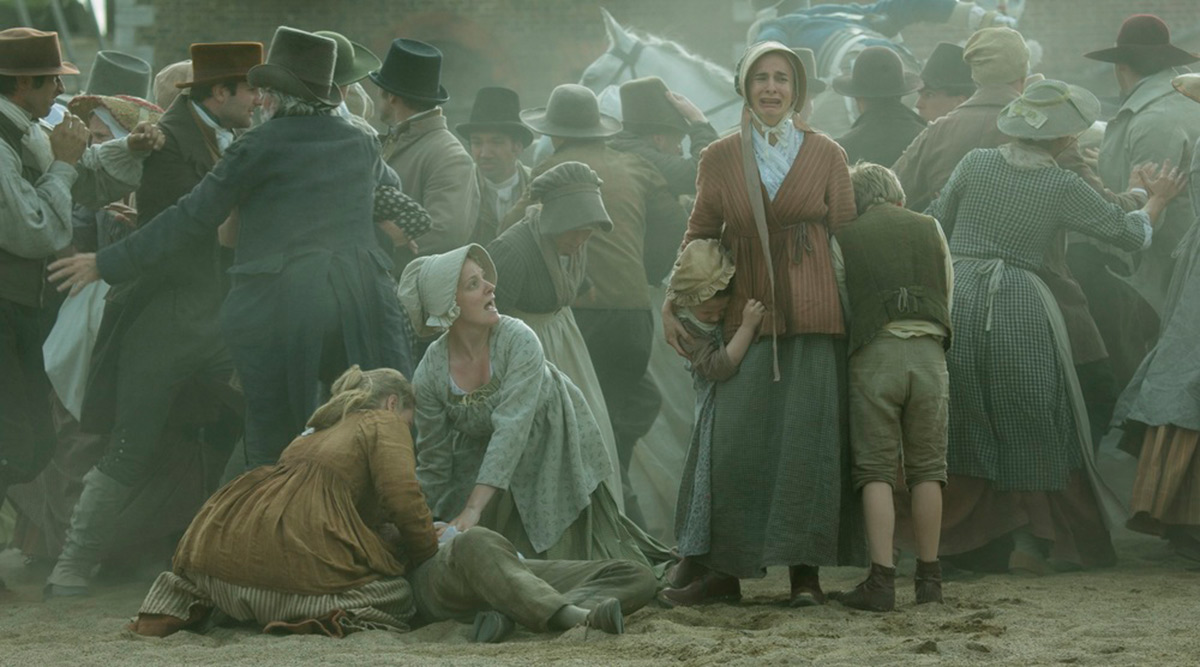The Promised Land
by George Wolf
Just going by its trailer, you might not expect The Promised Land to have much in common with Saltburn, but the similar themes are there. So while there’s no shocking bathwater here – or much bathing at all – there is a sweeping historical epic of one man’s quest for social climbing.
The man is Ludvig von Kahlen (Mads Mikkelsen), a longtime captain in the German army who returns home to Denmark in 1755. Desiring both wealth and honor, he visits the court of King Frederik V with a promise to bring the King what no one else has managed to deliver: settlements on the Danish heath.
Ludvig promises to tame the barren land in exchange for a noble title, a manor and some servants. And to seal the deal, Ludvig will finance the farming project with his own military pension.
Battling the elements and the roaming outlaws will be tough enough, but Ludvig also must face the wrath of sadistic county judge De Schinkel (Simon Beenebjerg), who wants to claim the land as his own and make good on his promise to Ludvig that “life is chaos.”
Director and co-writer Nikolaj Arcel adapts Ida Jessen’s historical novel as a harrowing tale that consistently reveals new layers throughout its two compelling hours.
Mikkelsen – teaming again with Arcel after 2020’s terrific Riders of Justice – is perfection as the battle-tested soldier with steely-eyed dreams of nobility. Ludvig’s arc plays out patiently, but as the Captain takes in two runaway peasant farmers (Amanda Collin, Morten Hee Anderson), a well-meaning pastor (Gustav Lindh) and an unwanted child (Melina Hagberg), Mikkelsen ensures the awakened humanity feels well-earned and real.
And Arcel keeps the stakes rising to thrilling effect. Cinematographer Rasmus Videbæk’s majestic frames serve and volley with the twists of the screenplay to mine drama that can be as subtle as a framed patch of dirt or as overt as the triangle that springs from Schinkel’s intended fiancée Edel (Kristine Kujath Thorp) eyeing Ludvig as the man who can save her.
What price ambition? It remains an intriguing question, whether you’re surrounding it with delicious ultra-modern pulp or re-imagining true events from hundreds of years past. The Promised Land takes the road less adorned, forging a rousing tale of savagery, revenge and fulfillment that will not be denied.






